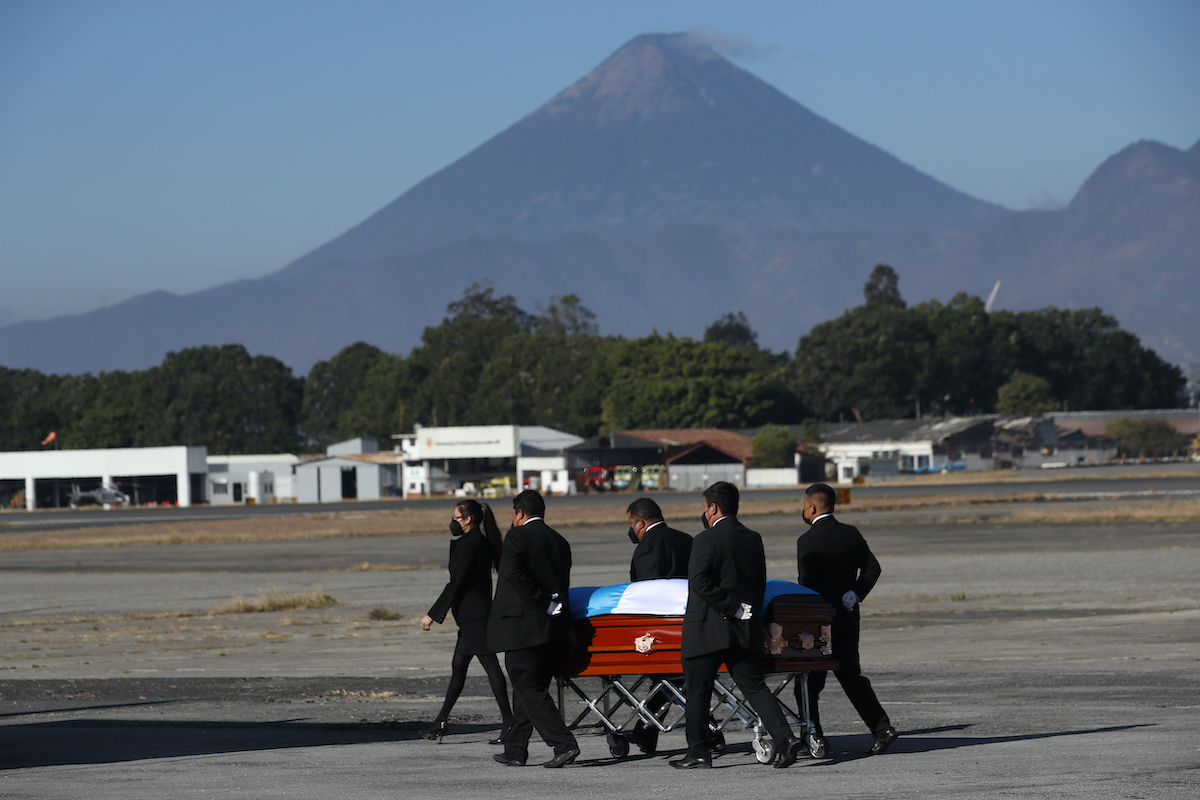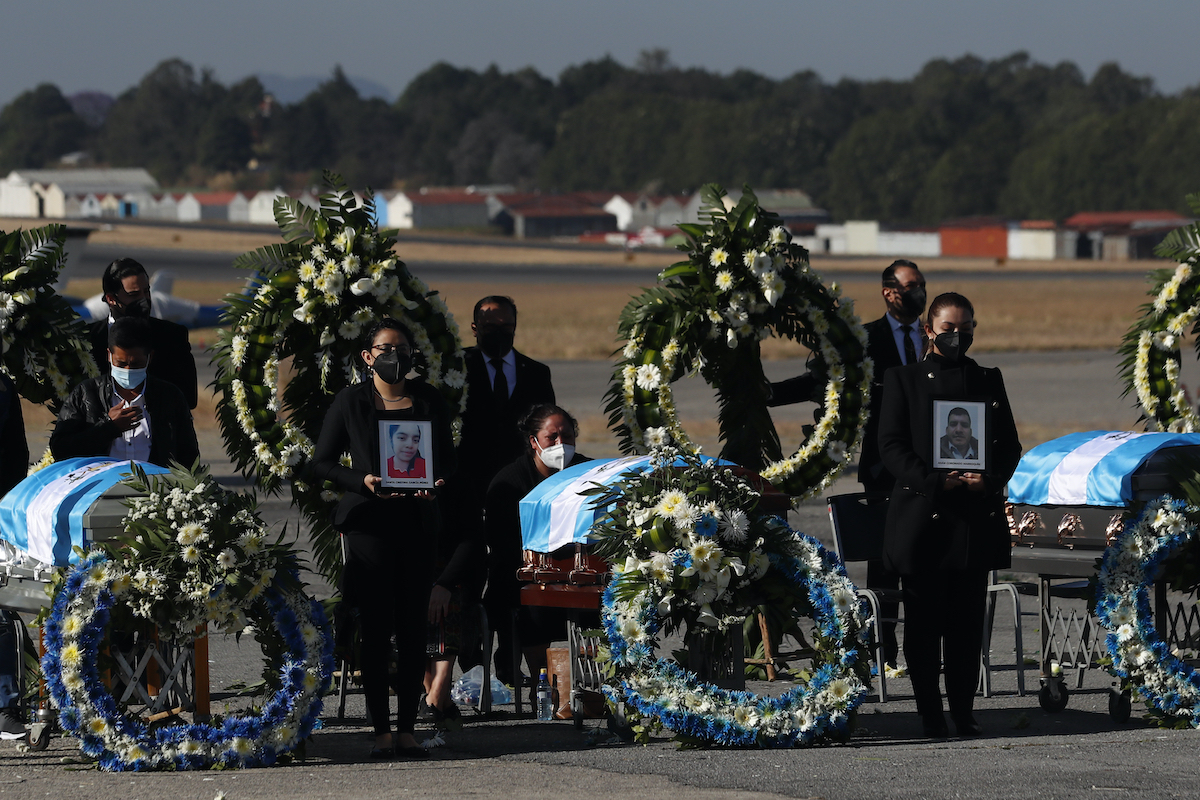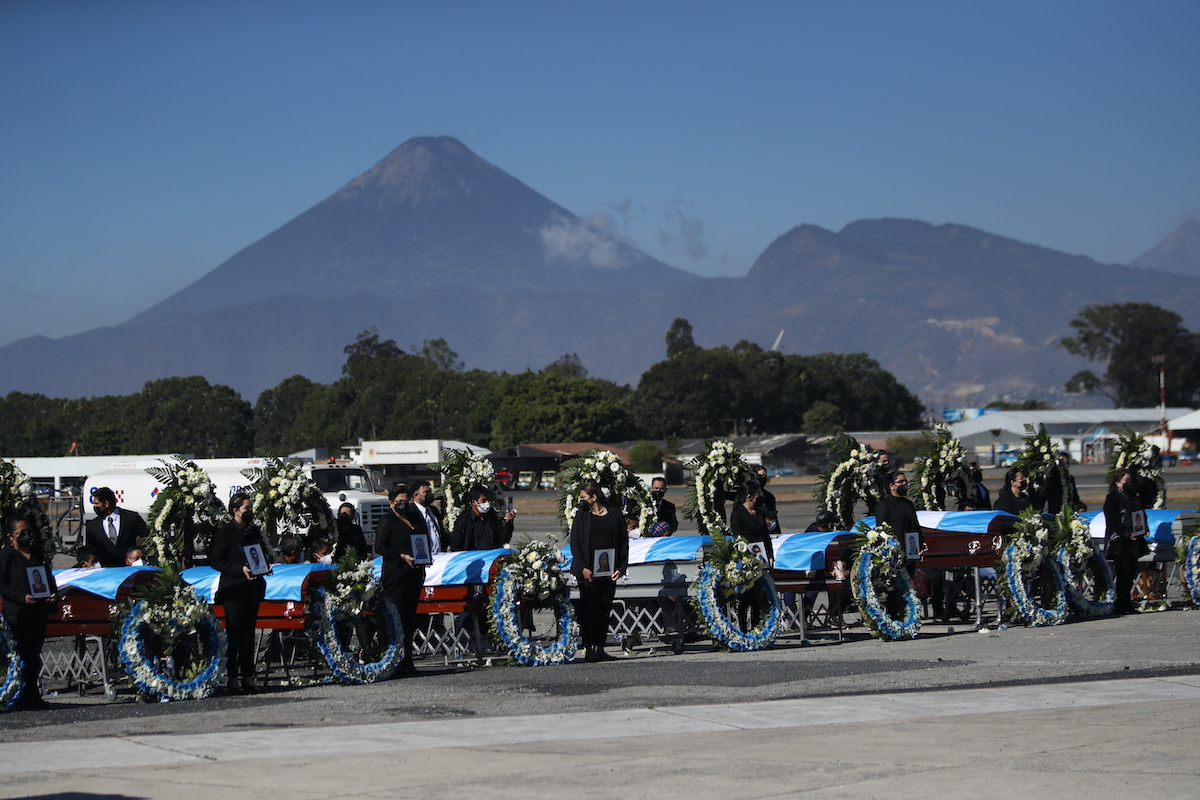

People transport a flag-draped coffin on the runway as the remains of 16 Guatemalan migrants who were killed near the U.S.-Mexico border in January arrive at the Air Force base in Guatemala City, Friday, March. 12, 2021. (AP Photo/Moisés Castillo)
By SONIA PÉREZ D., Associated Press
COMITANCILLO, Guatemala (AP) — Thousands of residents of this Guatemalan town turned out Friday night amid tears and applause to receive the remains of 16 of their own, migrants killed near the Mexico-U.S. border in late January.
Comitancillo packed its local soccer stadium to mourn along with the victims’ families each huddled around their loved ones’ respective caskets.
“It is unjust that the youth do not have the possibility of working here,” Rev. Mario Aguilón Cardona, a priest from the Santa Cruz Comitancillo parish, told the gathered crowd. “It is unjust that the families have to split year after year.”
The bodies arrived Friday night to this region near the Guatemala-Mexico border after starting the day in Reynosa, Mexico just across the U.S. border from Texas. A cargo jet flew them to an air base on the outskirts of Guatemala City early Friday morning and from there they began the nine-hour drive to Comitancillo.
Earlier, at the airport, family members holding photographs of their relatives stood beside caskets draped in the Guatemalan flag on the tarmac.
Evaristo Agustín broke into tears when he saw his brother-in-law Marvin Alberto Tomas’ casket. He said the 23-year-old “was a good guy.”
The Guatemalan government declared three days of mourning.


People stand with photographs as the remains of 16 Guatemalan migrants who were killed near the U.S.-Mexico border in January arrive at the Air Force base in Guatemala City, Friday, March 12, 2021. (AP Photo/Moisés Castillo)
The bodies, along with three others, were found piled in a charred pickup truck in Camargo, across the Rio Grande from Texas, in an area that has been bloodied for years by turf battles between the remnants of the Gulf cartel and the old Zetas cartel.
A dozen Tamaulipas state police officers were arrested in connection with the killings. The remains were flown from the Mexican border city of Reynosa early Friday.
President Alejandro Giammattei said Friday that his government remained in communication with Mexican authorities to ensure “those responsible for such a deplorable act” are punished. He said the crime must be cleared up so that nothing similar happens again.
“To you who are living this sorrow we will obtain reparation and hope,” Giammattei said to the families. “The government of Guatemala expresses its absolute rejection of the atrocities committed in this massacre.”
Relatives of the dead in the Guatemalan town of Comitancillo first raised the alarm that something horrible had happened in Camargo. Because the bodies had been burned, it took weeks for positive identifications through DNA samples, but the families in Guatemala had already started mourning.
The families had suddenly lost communication with their migrating relatives around January 21, and believed they had been near the area where Mexican authorities made the grisly discovery.


The flag-draped coffins of Guatemalan migrants who were killed near the U.S.-Mexico border in January stand on the runway after they were flown to an Air Force base in Guatemala City, Friday, March 12, 2021. (AP Photo/Moisés Castillo)
Some said that one of the smugglers who had been leading the group told the families what had happened.
Giammattei confirmed earlier this month that five Guatemalans had survived the attack and were under protection in the United States.
The massacre raised memories of another migrant massacre in Tamaulipas in August 2010, when members of the Zetas cartel killed 72 migrants near the town of San Fernando.


